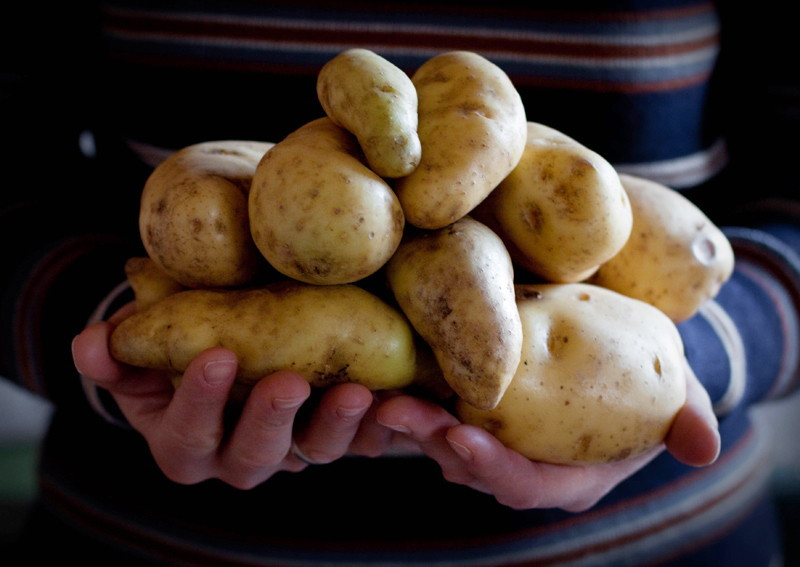Peak of potato monopoly
Marketing board helps growers stay profitable, supporters say
Recent allegations by a local small-scale potato farmer that Peak of the Market tried to squeeze him out of business when he sold without permission to a national grocery chain has some wondering if Peak is playing by the rules.
All potatoes in Manitoba must be sold through Peak of the Market, but Peak president Larry McIntosh said that, in the past, they’ve allowed farmers to sell at farmers’ markets and roadside stands unhindered.
Parameters will be created in the coming months that make the rules regarding those who wish to sell outside of the Peak umbrella official.
“The exemption for selling potatoes outside of Peak will be intended for small producers and farmers’ markets,” said McIntosh. “If people have the perception that Peak is a monopoly I don’t think that’s accurate. People forget that Peak is not some big corporation. It’s Manitoba growers working together ... We compete against other provinces, just not each other.”
He also responded to allegations made by Eric Crampton of Crampton’s Market that Peak was clamping down on producers, saying their approach is the same as it has always been.
“Marketing boards like Peak are one of the ways that we maintain profitability,” said a local grower, who belongs to Peak. He asked that his name not be used. “You don’t have pricing competition. The product is jointly marketed.”
Food safety is also an issue when it comes to evaluating the role of Peak in the Manitoba marketplace, according to McIntosh and Peak members. Peak must conform to food safety standards that are approved by the Canadian Food Inspection agency.
“Many products are marketed using boards like Peak. Eggs and milk are controlled by marketing boards. The Canadian Wheat Board is a good example,” said the grower.
As to allegations that Peak is not local-food friendly, McIntosh said Peak values the relationship between the consumer who wishes to buy on a more local level and the small-scale farmer, and said they have no interest in abolishing it.
“I think people buy local because it’s more personal,” said organic and local food market Organza employee Joelle Kidd. “I think [reprimanding] someone from selling outside [Peak] is taking it a little too far.”
Published in Volume 64, Number 9 of The Uniter (October 29, 2009)







